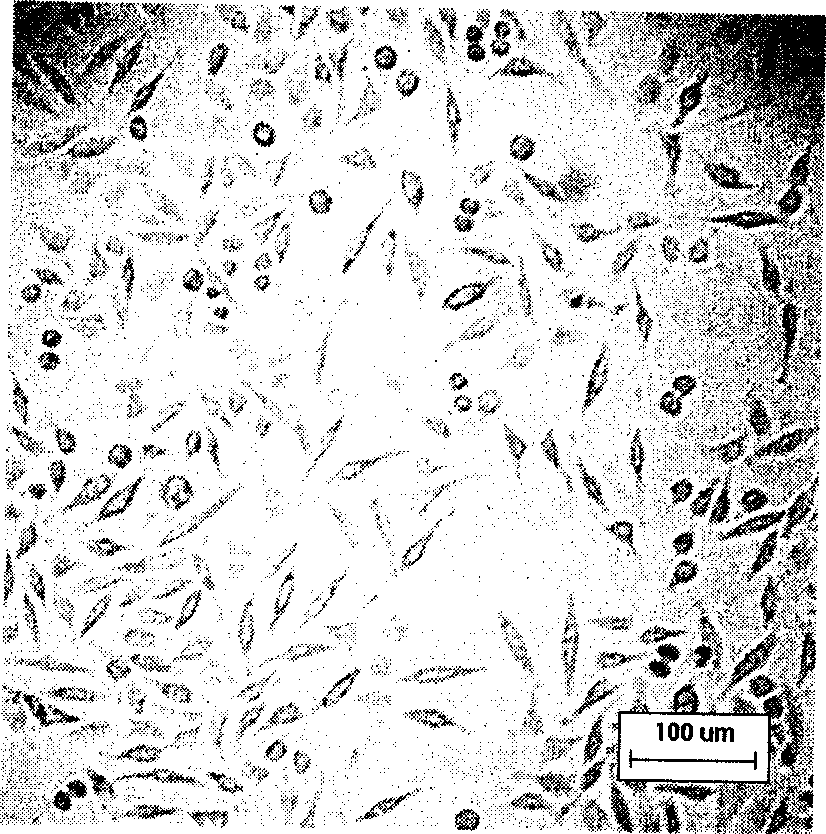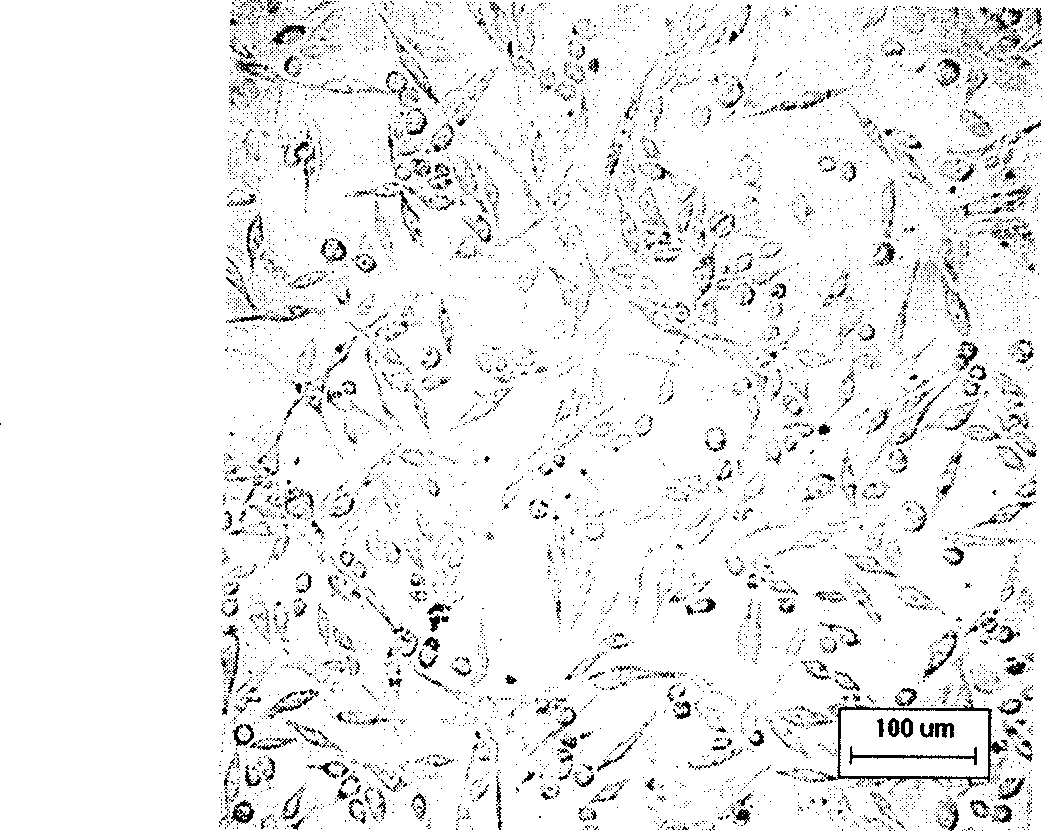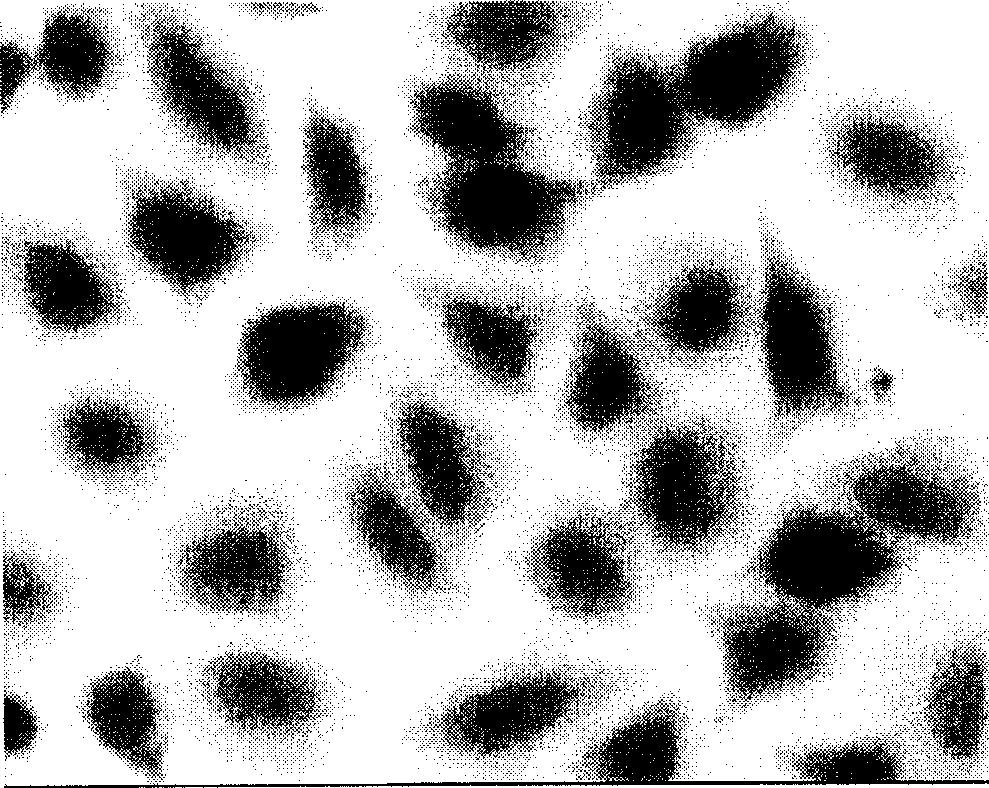Cervical cancer multidrug resistance cell strain established by etoposide induction
A multi-drug resistance, cell line technology, applied in the field of tumor biology, can solve problems such as affecting the degree of drug resistance of tumor cells and easy to produce drug resistance
- Summary
- Abstract
- Description
- Claims
- Application Information
AI Technical Summary
Problems solved by technology
Method used
Image
Examples
Embodiment 1
[0009] SiHa / VP16 multi-drug resistant cell line is established according to the following steps: (1) Human cervical cancer SiHa cell line, after recovery, use DMEM culture medium (containing 10% calf serum, penicillin 100U / ml, streptomycin 100ug / ml) At 37°C, 5% CO 2 , 95% humidity conditions; (2) take SiHa cells in the logarithmic growth phase, change fresh culture medium, add VP16, make the effect concentration be 0.1μg / ml, in 37 ℃, 5% CO 2 , continue to cultivate under 95% humidity conditions, change the medium in time, and maintain the drug concentration of 0.1 μg / ml until the surviving cells can grow stably and pass on at this concentration; (3) Appropriately increase the concentration of VP16. 2 , Continue culturing under 95% humidity conditions, change the medium in time, and maintain the drug concentration until the surviving cells can grow stably and pass on at this concentration; (4) Repeat step (3) until the stable growth, passage and recovery in 2 μg / ml VP16 are obt...
Embodiment 2
[0012] The SiHa / VP16 cell strain that this method is established carries out morphological observation and biological characteristic identification:
[0013] 1. Morphological observation
[0014] (1) Inverted phase-contrast microscope to observe the morphology of living cells
[0015] Take a bottle of SiHa and SiHa / VP16 cells in the logarithmic growth phase, and observe the morphology of living cells under an inverted phase-contrast microscope after changing the medium and take pictures. It can be seen that the three-dimensional sense of SiHa / VP16 cells is enhanced, sometimes showing a short and fat spindle shape, but generally speaking, it is not much different from SiHa cells. (As shown in Figure 1 and 2)
[0016] (2) HE staining to observe cell morphology
[0017] Take SiHa and SiHa / VP16 cells in the logarithmic growth phase, digest with 0.25% trypsin to make a single cell suspension, and adjust the density to about 1×10 5 / ml, inoculated on a petri dish covered with a ...
PUM
 Login to View More
Login to View More Abstract
Description
Claims
Application Information
 Login to View More
Login to View More - R&D
- Intellectual Property
- Life Sciences
- Materials
- Tech Scout
- Unparalleled Data Quality
- Higher Quality Content
- 60% Fewer Hallucinations
Browse by: Latest US Patents, China's latest patents, Technical Efficacy Thesaurus, Application Domain, Technology Topic, Popular Technical Reports.
© 2025 PatSnap. All rights reserved.Legal|Privacy policy|Modern Slavery Act Transparency Statement|Sitemap|About US| Contact US: help@patsnap.com



